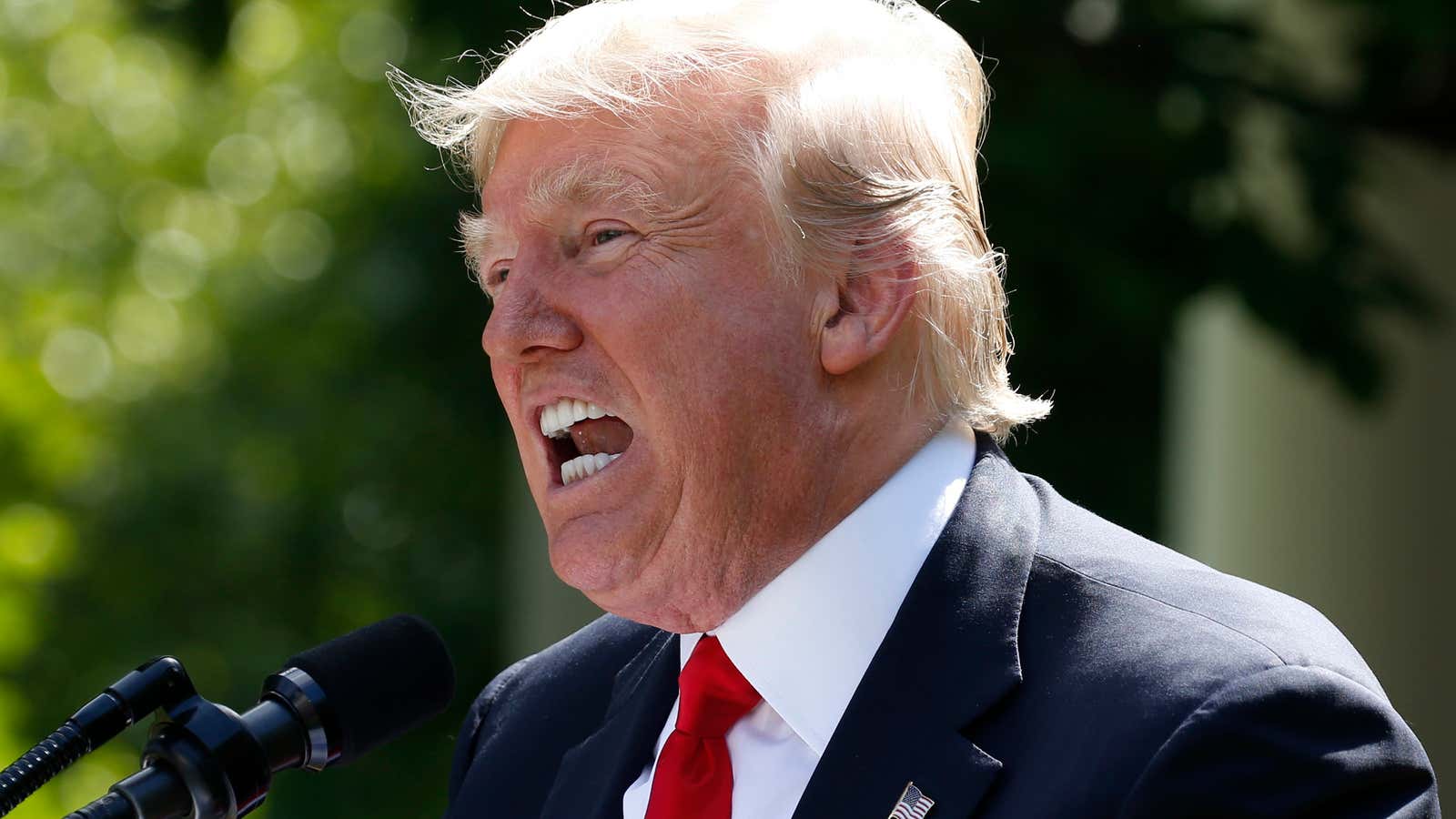Part of US president Donald Trump’s justification for pulling the country out of the global Paris climate agreement yesterday was that the deal wouldn’t reduce temperatures enough to make an impact. Citing research from the Massachusetts Institute of Technology (MIT), the president said that even total compliance from all the nations involved in the accord—which hopes to limit global warming to 2°C by 2100—would only produce a “two-tenths of 1°C reduction in global temperature by the year 2100.”
“Tiny, tiny amount,” scoffed Trump.
His interpretation was a tiny, tiny bit wrong, according to the MIT professors who authored the research he cited. Their April 2016 study found that global warming would slow by between 0.6°C and 1.1°C by 2100 as a result of the accord. The school noted yesterday that the number cited by Trump is “misleading” because it measures the Paris agreement’s incremental impact over a previous Copenhagen agreement, and that it assumes the countries will not strengthen their commitments to fighting climate change after 2030.
If nothing is done, the global temperature could shoot up by 5°C or more, according to John Reilly, the co-director of MIT’s Joint Program on the Science and Policy of Global Change, which produced the research. Reilly told Reuters the White House did not contact MIT scientists or offer them a chance to explain their work before Trump used it in his speech at the Rose Garden this week.
Study co-author Erwan Monier, a lead researcher at the joint program, said that the school’s climate researchers “certainly do not support the withdrawal of the US from the Paris agreement.”
Trump’s decision to take America out of the agreement prompted immediate backlash from the scientific community backlash and local policymakers. More than 80 US mayors have since pledged to stick to the terms of the agreement, which tasks governments with reducing carbon dioxide and fossil fuel emissions.
Arguing yesterday that the accord placed an unreasonable burden on the US, Trump said, “We will see if we can make a deal that’s fair. And if we can, that’s great.” He added, “If we can’t, that’s fine.” Yet a renegotiation may not even be possible.
